Market Conditions: Definition, Types, And How It Affects Your Trading
By Wilbert S
January 10, 2024 • Fact checked by Dumb Little Man
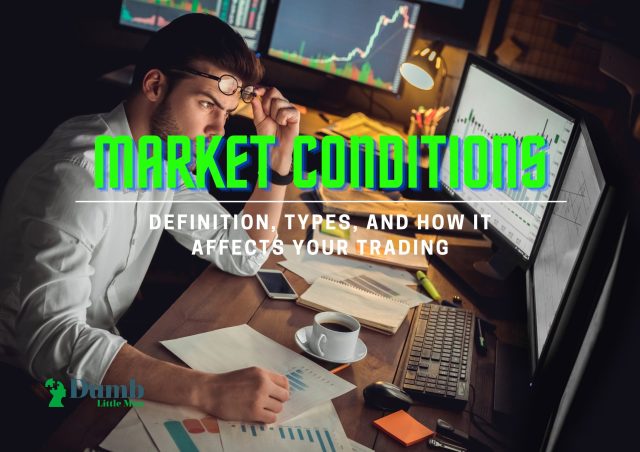
Want to jump straight to the answer? The best Stock Brokers are Tradestation and Tradier
The #1 Stocks and Forex Trading Course is Asia Forex Mentor
Market conditions are the economic environment for business investment and employment. This can include factors such as the level of supply and demand, the price of assets, and the overall level of economic activity. Several favorable conditions are required for businesses to invest, expand their operations, and hire new employees. However, the other unfavorable conditions can make the market very difficult and lead to a contraction in the economy.
The different types of market conditions are generally categorized as being either bullish or bearish. A bullish market is a general optimism about the future direction of prices, where buying pressure is greater than selling pressure. A bearish market is just the opposite, characterized by pessimism and more selling than buying.
The most important thing to remember about market conditions is that they are always changing. What might be a bullish market today could turn bearish tomorrow, and vice versa. This is why it’s so important for traders to stay up-to-date on the latest news and developments that could impact the markets.
To better understand the market conditions concept, we have got Ezekiel Chew to share his take with us on this matter. He is the CEO and co-founder of Asia Forex Mentor, a leading forex education provider. He is also a professional forex trader and has been involved in the financial markets for over a decade.
What are Market Conditions
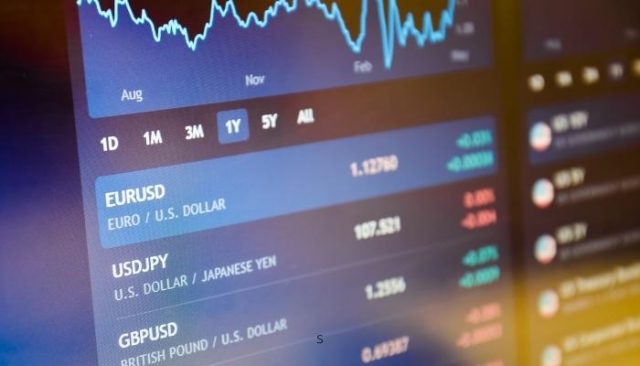
The state of an economy, industry, or nation is referred to as market conditions. This phrase is frequently used in the stock and real estate markets. Volatility and steadiness are explained by the fact that market circumstances might be good or bad.
A market condition is a statement about the state of an industry, business, or investment market’s economy. An ideal situation would allow for economic development, possible investors, and other perks. Conversely, a challenging market to navigate is one in which the market is in poor condition.
Types of Market Conditions
There are various sorts of market situations. These categories describe the price situation in several markets:
Trending Market
In a trending market, the market prices change in a particular trend direction. The changes might be up or down, but the overall direction is apparent. There are two types of trending markets i-e uptrend and downtrend.
Uptrend
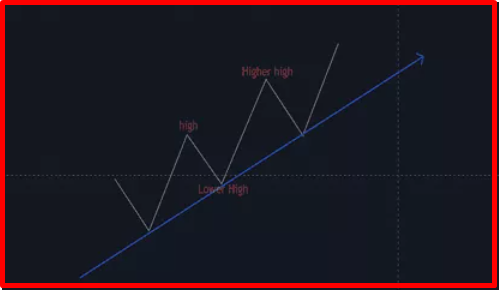
An uptrend is a market trend where prices consistently get higher over time. This happens when the demand for a good or service exceeds the supply.
Downtrend
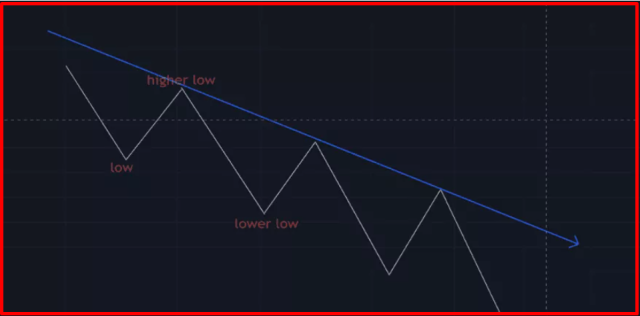
A downtrend is a market trend where prices consistently get lower over time. This happens when the supply of a good or service is greater than the demand.
Ranging Market
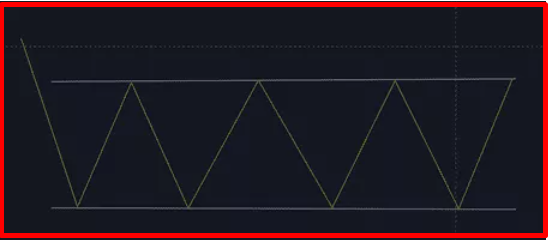
This is a type of condition where prices are moving sideways. For example, in a ranging market, the prices will hit a high and then a low and continue to move between these two points. This type of market is also known as a trading range or channel.
Major Factors Influencing Market Conditions

Some of the market scenarios that can change a market condition are as follows:
#1. Supply And Demand (Invisible Hands)
The overall supply and demand determine the general rates of goods and services. As a result, supply or demand changes can immediately impact product, service, currency, and other investment prices.
When demand for a commodity remains steady or decreases, the supply rises for that same item. As a result, the price of the commodity would decline.
In a declining supply and an increasing demand, the price of that product would rise. Individuals, businesses, and the money system are all influenced by supply increases. Supply is determined by a tangible good in certain markets, such as real estate. However, the federal reserve is based on faith or perception and the same goes for other markets.
#2. Geopolitical Events and News
The current political situation has immense power over the markets. For example, a change in government or an impending war can trigger a market crash. In contrast, a trade deal or new legislation could lead to a market boom.
Investors tend to be skittish when it comes to geopolitical events. They don’t like uncertainty and will often sell their assets before an event occurs. This can lead to a sell-off in the markets and a decrease in prices.
Geopolitical events are often unpredictable, and they can have a significant impact on the markets. Therefore, staying up-to-date on the latest news and developments that could impact the markets is important.
#3. Economic Data Releases
Economic data releases are another factor that can impact market conditions. These releases include economic indicators, such as gross domestic product (GDP), inflation, and unemployment. In addition, governments and other organizations release them regularly.
Investors watch these releases closely because they can provide insight into the health of an economy. For example, a strong economy is often associated with a strong stock market. In contrast, a weak economy can lead to a stock market decline.
It’s important to note that economic data releases can often be unpredictable. As a result, they can sometimes surprise investors, leading to sharp market price movements.
#4. International Transactions
International transactions can also impact market conditions. For example, if a country buys more goods from other countries than it sells, there is a trade deficit. A trade deficit can lead to a decline in the value of that country’s currency.
In contrast, if a country sells more goods to other countries than it is buying, this is called a trade surplus. A trade surplus can lead to an increase in the value of that country’s currency.
International transactions can also be affected by political events. For instance, if a country imposes tariffs on imported goods, this can lead to a decline in international trade. This, in turn, can impact the markets.
#5. Speculation And Expectation
Speculation and expectation can also play a major role in market conditions. For example, if investors believe that a stock will increase in value, they may start buying it up. This can lead to a price increase for that stock.
On the other hand, if investors believe that a stock will decrease in value, they may start selling it. This can lead to a price decrease for that stock.
Speculation and expectation can be based on many different things, such as news, rumors, or even a gut feeling. It’s important to remember that these factors can often be unpredictable and can change quickly.
The Participant Effect on Market Prices

Based on their knowledge of government policies like interest rates and foreign transactions, speculators and investors generate speculation about where prices will go.
The stock experiences a long-term trend when most people agree on a single way to act. Market participants who are mistaken may perpetuate trends. This pushes trading prices in the same way as they move to exit losing positions.
Best Stocks and Forex Trading Course

Ezekiel Chew is a professional forex trader and trainer. He is the founder of Asia Forex Mentor, one of the largest forex education companies in the world. He has 2 decades of experience in the forex market and is respected for his knowledge and expertise.
Ezekiel’s core program, ‘AFM PROPRIETARY ONE CORE PROGRAM,’ is the Complete Program, which covers everything from beginner to advanced. The program is designed to give you the best possible chance of success in the forex industry. It is backed by mathematical probability and has been used by banks and trading institutions for years.
Ezekiel is a highly credible figure in the forex industry. So, if you are trying to make money in forex trading, you should check out his program to start your forex career.
| RECOMMENDED TRADING COURSE | REVIEW | VISIT |
|---|---|---|
 | #1 Forex, Crypto and Stocks trading course. Ranked most comprehensive by Investopedia and Best by Benzinga. Free to Try! |  |
Best Stock Brokers
| Broker | Best For | More Details |
|---|---|---|
 | Advanced Traders Read Review | securely through Tradestation website |
 | Intuitive Platforms Read Review | securely through Tradier website |
 | Powerful Services at a Low Cost | securely through Tradezero website |
 | Professional Forex Traders Read Review | securely through Interactive Brokers website |
Conclusion: Market Conditions
To sum it up, market conditions are the different factors that can impact the price of a security. These factors include economic data releases, international transactions, speculation and expectation, and the participant effect. It’s important to remember that these factors can be unpredictable, and they can change quickly.
When trading stocks, it’s important to be aware of these different factors and how they affect prices. This knowledge can help you make better trading decisions and hopefully lead to more market success.
Market Conditions FAQs
How do you identify Market Conditions?
The market is mostly divided into two types i-e trends and ranges. A trend is when the market makes higher highs and higher lows (uptrend) or lower lows and lower highs (downtrend). A range is when the market trades between two horizontal price levels.
What are interest rates?
Interest rates are the rate at which money can be borrowed from banks. The central bank of a country usually sets the interest rate. When interest rates are high, it usually means that borrowing money will be more expensive. This can lead to decreased spending and investment, impacting the markets.
Wilbert S
Wilbert is an avid researcher and is deeply passionate about finance and health. When he's not working, he writes research and review articles by doing a thorough analysis on the products based on personal experience, user reviews and feedbacks from forums, quora, reddit, trustpilot amongst others.













